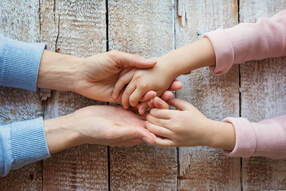To be considered a Safe Person is a big responsibility, as one needs to realize that the kid's safety and well-being are, to a certain degree, in one's hands. You don’t need to be a parent to be a Safe Person. You might be a teacher, coach, neighbor, mentor, aunt/uncle or anything else. The principles of safety are the same, even if the execution looks different. You are still the person the child can come to when they need protection.
It is possible that if the child wants to share that he/she experienced an uncomfortable, dangerous or abusive situation, he/she will go to the Safe Person to disclose.
If this is the case, the Safe Person must refrain from behaviors that will frighten the child, put him or her on the defensive, or cause him or her to relive the abusive events.
It is possible that if the child wants to share that he/she experienced an uncomfortable, dangerous or abusive situation, he/she will go to the Safe Person to disclose.
If this is the case, the Safe Person must refrain from behaviors that will frighten the child, put him or her on the defensive, or cause him or her to relive the abusive events.
These are some guidelines that the organization Darkness to Light has in case a child shares sensitive information:
- "Don’t overreact or make negative statements about the abuser.
- Don’t make judgments or conclusions about the child or abuser.
- Don’t interrogate, investigate, or delve deeply into the events.
- Don’t ask leading questions or make suggestions about what happened. For example, ask, “How did you get hurt?” rather than “Did someone do that to you?”
- Don’t make promises that the information will be kept confidential.
- Don’t make any broad promises about the future."

